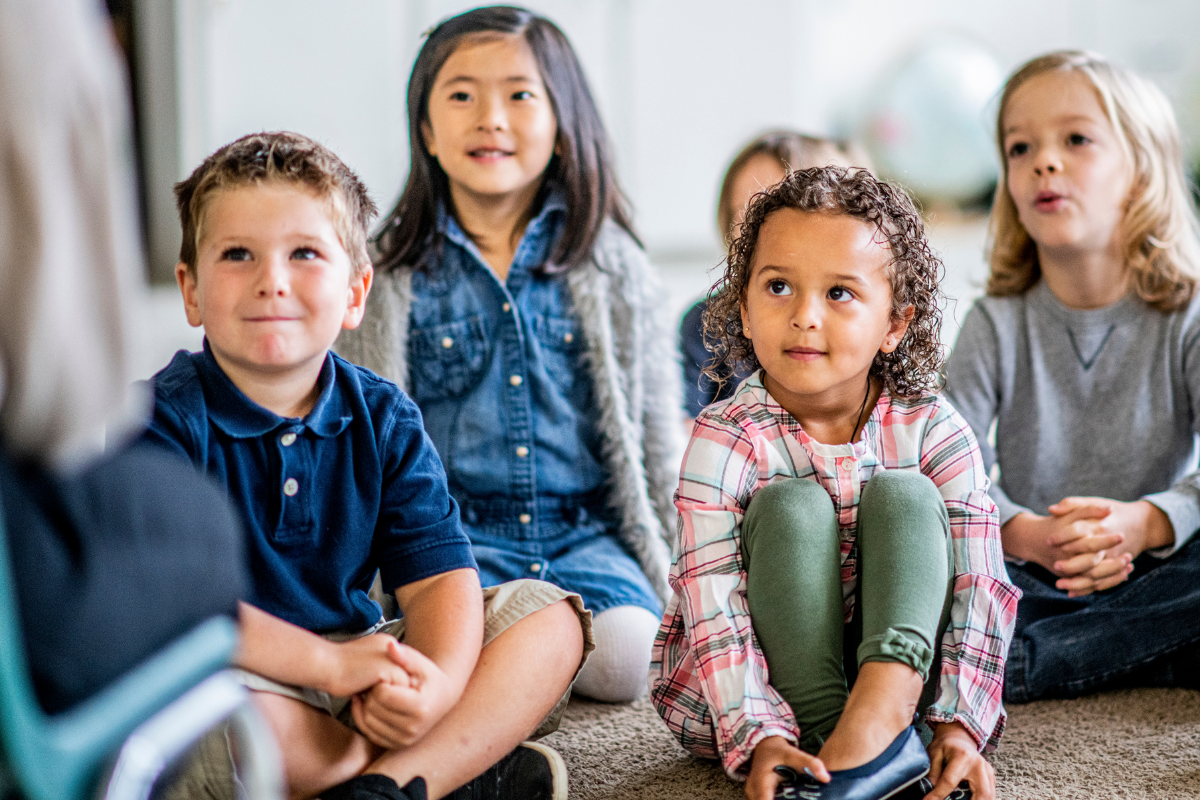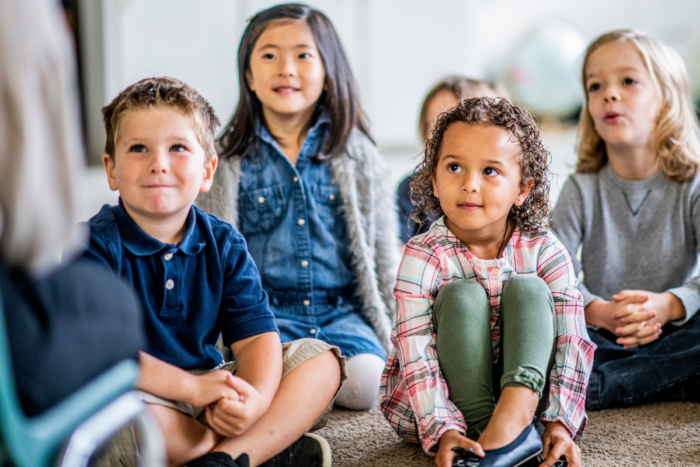
Empowering Educators: ABAR Teaching in Action
In 2019, First Book surveyed its network of educators, with the intention to provide additional resources that would help them proactively engage their students in conversations about race. These findings helped create a series of free resources that were informed by leading anti-bias and antiracist (ABAR) experts like Britt Hawthorne, Tiffany Jewell, Liz Kleinrock, Cornelius Minor, Catherine Wigginton Greene, and Christine Platt.
The Launch of Empowering Educators
In 2020, First Book launched the first year of its Empowering Educators series which included a Guidebook on Race & Racism, special edition paperback #OwnVoices stories, and the first part of a digital series on race and racism.
Part I of the series explored the theories and model examples of how to have a conversation around race within an educator’s classroom. With the guidebook serving as a supplementary piece with specific ideas and concepts, educators could begin to focus on understanding systemic racism, how to evaluate their classroom bookshelves and lesson plans, and even incorporate literature to guide conversations. In an already tumultuous year, the initial digital series and guidebook laid the groundwork for this year’s implementation series and activities.

Expanding the Dialogue
For the last few months, First Book have been working hard to expand the dialogue and resources for educators through Part II of the digital series. We are thrilled to share the first new video is now available and builds on the insights from our featured ABAR education subject matter experts. The latest video provides examples of real educators and their students engaging in lessons or discussions about race, diversity, or inclusion.
This video, and Part II of the series proudly highlights First Book members from around the country as they model their approaches to ABAR teaching in action and how they create a community for their learners, and all aspects of their practice.
Creating a Brave Space
The first video, Creating a Brave Space: Two Lessons includes approximately 20-minutes of footage of class discussion for two different age ranges, plus additional educator insights about their approach. Before you dive into the second lesson, we invite you to revisit the companion video from Part I: Let’s Create a Brave Space with ABAR educator Britt Hawthorne.
Elementary Learners: Understanding Microaggressions
The first segment features Skye Tooley discussing microaggressions with their fifth graders using a poem from the book Can I Touch Your Hair? Poems of Race, Mistakes, and Friendship.
High School Learners: How to Engage in Challenging Conversations
Shari Revels-Davis calls us in as she and her students at an alternative high school create the “discussion rules” together before beginning a unit on race, current events, and social justice.
The high school segment begins at timestamp 12:06.
Download Additional Resources
The Empowering Educators series of resources from First Book also includes five #OwnVoices picture books newly available in affordable paperback editions. These #OwnVoices titles join hundreds of books for all ages that celebrate diversity and inclusion on the First Book Marketplace.
Download the FREE Guidebook on Race & Racism for ABAR lesson planning tips, conversation starters, and activity ideas designed to help adults and young people develop the skills and confidence they need to create meaningful change in their classrooms and communities.
